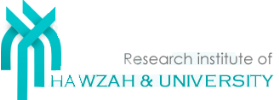
Welfare Economics from an Islamic Perspective
Welfare Economics from an Islamic Perspective
Determining the goals of a public policy and, consequently, the means to achieve the concerned goals, and evaluating these policies require ethical values that are called normative ethics. Some Islamic scholars believe that the Islam’s school of ethics is teleological not deontological. For some scholars, principles of duty and principle of outcome are the benchmark for the accuracy and inaccuracy of an action; therefore, in the case of a conflict between the implications and ethical values of the duties or even between the various outcomes or between the duties, the emphasis is on the use of revelation and expediency as a proof. In general, Islamic scholars of the welfare economics can be regarded beyond welfare-oriented groups, and the difference is that they consider expediency, and, in particular, justice, perfection, and proximity of human beings to God, which are characterized by the full utilization of revelation and wisdom, as the main benchmarks in the evaluation of policies and economic conditions.
Author: Mohammad Taghi Gilak Hakim Abadi

Your Comment :